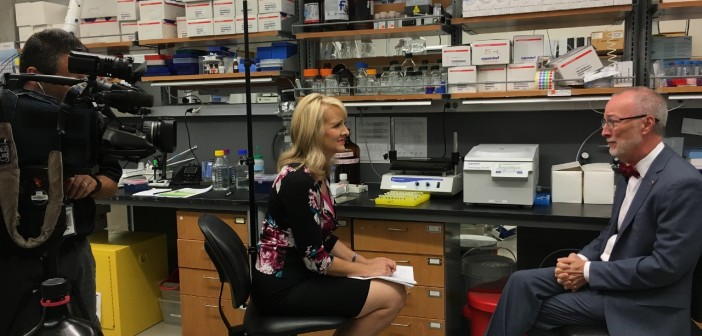Following a recent publication on the long-term effects of participation in TV’s “Biggest Loser” competition, Steven Smith, MD, professor in SBP’s Integrative Metabolism Program and director of the Translational Research Institute for Metabolism and Diabetes at Florida Hospital, was interviewed by NBC WESH TV Orlando reporter Amanda Ober. Smith explained why nearly all of the “Biggest Losers” regained large proportions of the weight they had lost, and sometimes even more.
“After losing weight the body fights back, trying to restore the previous state. Metabolism slows to conserve energy, and levels of hormones that make you want to eat increase,” said Smith. “Together, these make it very difficult to maintain weight loss.”
Specifically, the new paper found that contestants’ metabolism continued to slow even after their time on the show ended, so that they were burning, on average, 700 fewer calories per day than before they lost weight. While this effect is particularly extreme in these cases, it occurs with even a five- to ten-pound weight reduction.
“This study shows that keeping weight off is not just a matter of willpower and support in maintaining a healthy lifestyle,” added Smith. “The biological response to weight loss, especially changes in metabolism, really works against you.”
However, there is hope for those who need to lose a lot of weight for their health — a few of the contestants’ metabolism improved since the end of the show. At least one participant underwent bariatric surgery, a procedure that doesn’t appear to slow metabolism or increase levels of appetite-stimulating hormones.
Many scientists are studying how bariatric surgery changes the body’s response to food. Their findings could lead to new non-surgical options to enable long-term weight loss in ways that improve overall health.
Until these interventions are available, Smith offers the following advice for those who have lost weight and are trying to avoid re-gaining it: “Be vigilant about calorie intake, limit the amount of fat in your diet, and exercise — more is better, so if you can, be active for one or two hours a day.”
For more on SBP research on obesity and weight loss, see:
Steven R. Smith leads clinical study on new weight loss treatment
Exercise following bariatric surgery provides health benefits
New links between heart hormones, obesity, and diabetes
How your organs ‘taste’ sugar
